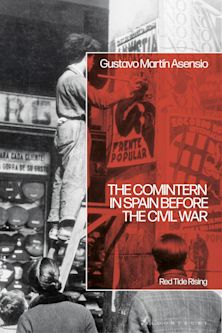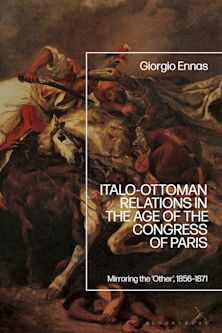- Home
- ACADEMIC
- History
- European History
- Historical Dictionary of Brussels
You must sign in to add this item to your wishlist. Please sign in or create an account
Description
Brussels has become the “capital” of Europe, serving as the headquarters for key regional and international agencies, including the European Union, the North Atlantic Treaty Organization, UN organizations, multinational businesses, lobbying firms, governmental groups, and nongovernmental organizations. Its status as a diplomatic, political, and economic center assumes ever greater importance as the EU grows in depth and breadth.
This second edition of Historical Dictionary of Brussels covers its history through a chronology, an introductory essay, appendixes, and an extensive bibliography. The dictionary section has over 900 cross-referenced entries on important personalities, politics, economy, foreign relations, religion, and culture. This book is an excellent access point for students, researchers, and anyone wanting to know more about Brussels.
Table of Contents
Preface
Acknowledgments
Reader’s Note
List of Acronyms and Abbreviations
Maps
Chronology
Introduction
THE DICTIONARY
Appendixes
A. The Nineteen Communes of the Brussels Capital Region
B. Population of the City of Brussels, ca. 1400–2012
C. Burgomasters of Brussels, 1830–Present
D. Minister-Presidents of the Brussels Capital Region
E. The Nine Nations
F. Division of Residents According to Language Used
Bibliography
About the Author
Product details
| Published | Apr 16 2015 |
|---|---|
| Format | Ebook (Epub & Mobi) |
| Edition | 2nd |
| Extent | 590 |
| ISBN | 9780810879218 |
| Imprint | Rowman & Littlefield Publishers |
| Illustrations | 26 BW Photos, 4 Maps, 2 Tables |
| Series | Historical Dictionaries of Cities, States, and Regions |
| Publisher | Bloomsbury Publishing |
About the contributors
Reviews
-
The volume is a mine of information for anyone wanting a useful summary of the achievements of a range of individuals and of organizations which have played a prominent role in the city’s history or of events which have made Brussels so important to the movement towards European union. The curious reader will no doubt be rewarded for their outlay by access to a range of information on subjects as diverse as the story of Edith Cavell, nursing heroine of the Great War and the history of chocolate confectionery in Brussels. How many outside Brussels are aware that the city houses a museum devoted to the cultivation of a local vegetable, the Brussels Witloof or white endive? The volume is completed by a number of useful... illustrations. The volume should be on the desk of every Brussels bureaucrat!
Reference Reviews

ONLINE RESOURCES
Bloomsbury Collections
This book is available on Bloomsbury Collections where your library has access.



































